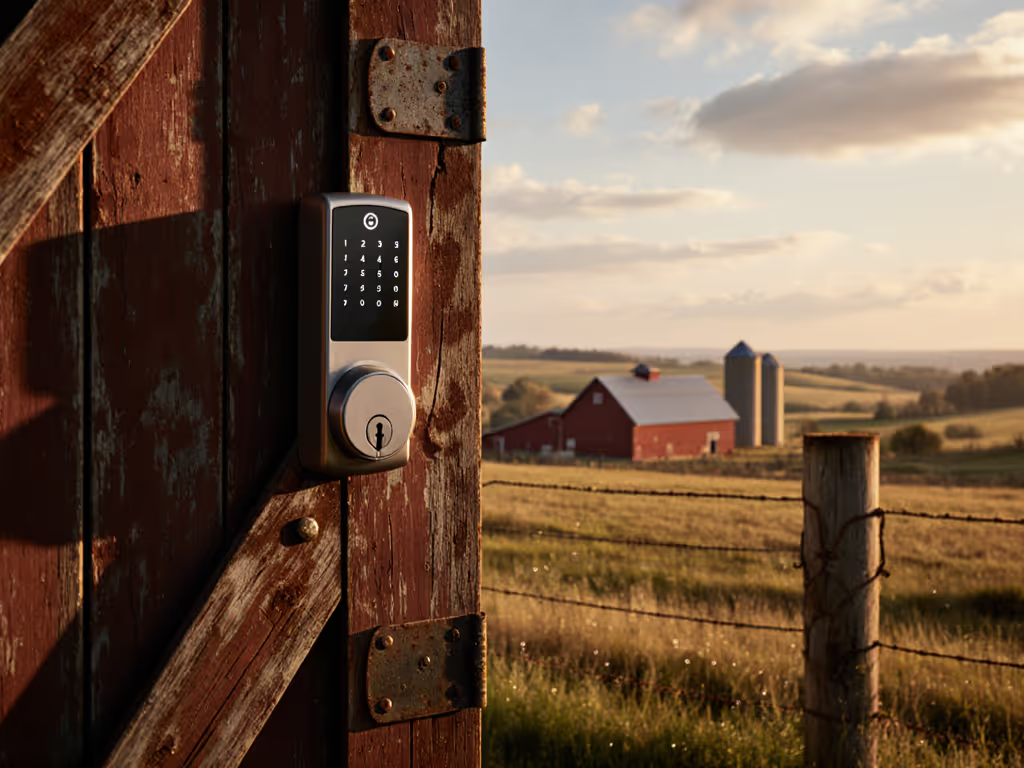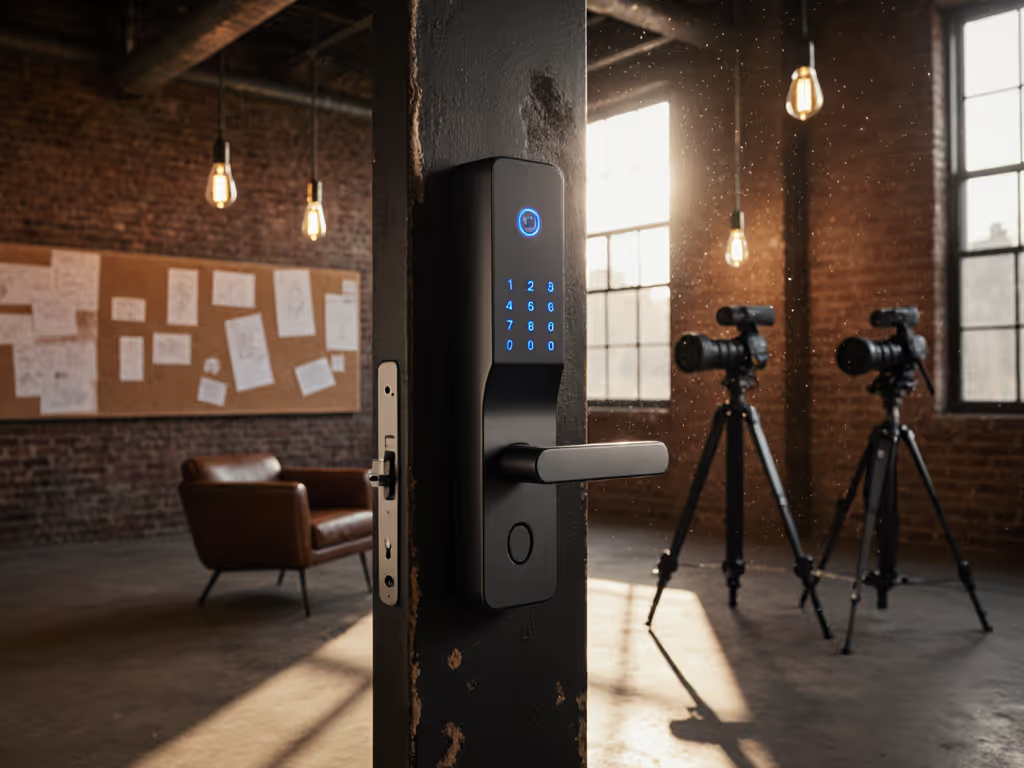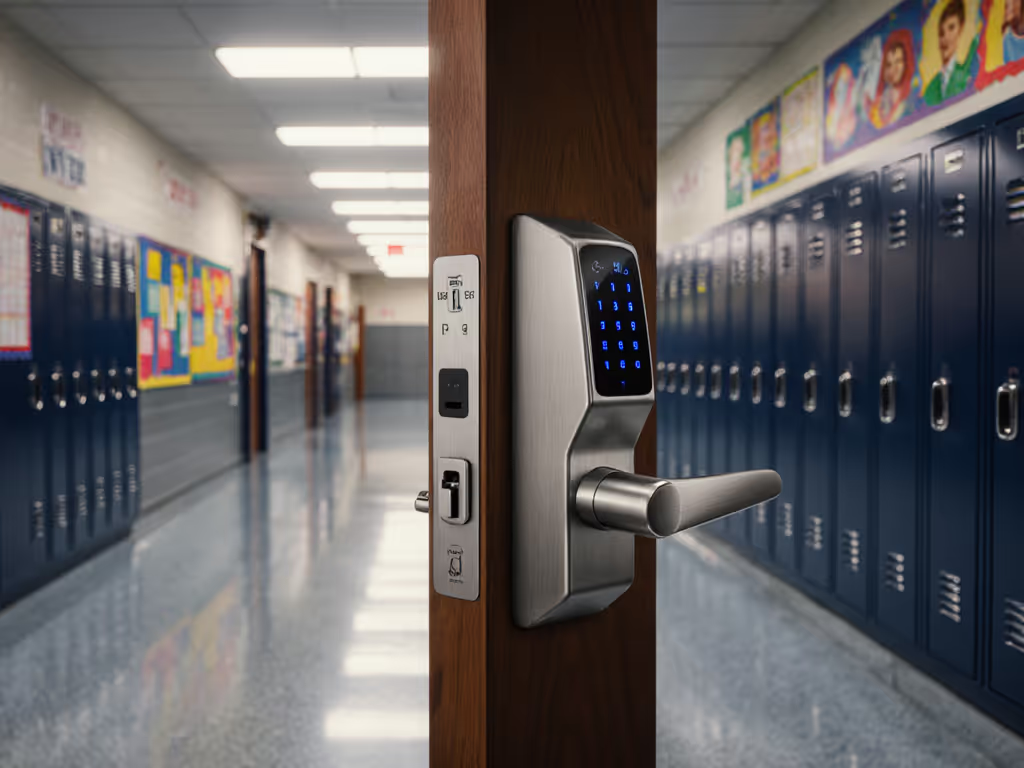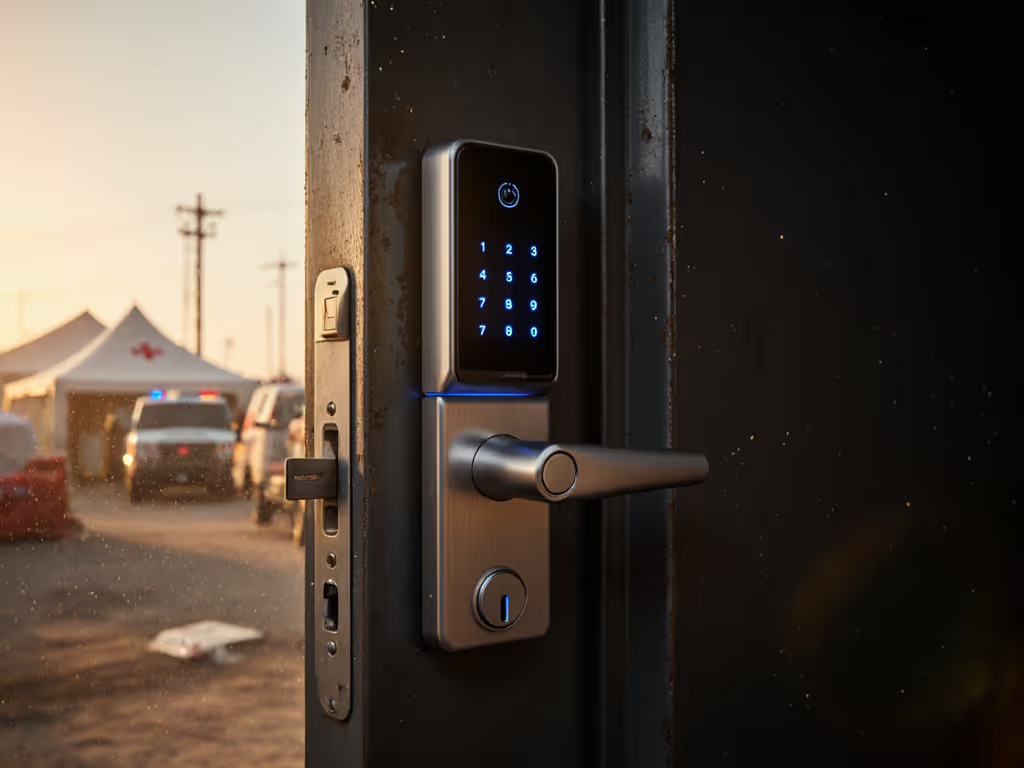
Tiny Home Smart Locks: Space-Saving Security Solutions

When you live in a compact dwelling where every square inch counts, your door smart lock must deliver maximum security without compromising on space. Traditional bulkier models simply won't work in a tiny home environment, where compact security solutions need to balance functionality with minimal footprint. For privacy-conscious homeowners and rental hosts managing compact spaces, the right smart lock isn't just a convenience (it's essential infrastructure that protects both physical space and personal data).
The Space vs. Security Dilemma for Compact Living
Tiny homes present unique security challenges that standard residential solutions don't address. When your entire living space could fit inside a typical suburban bedroom, you can't afford a clunky lock mechanism that dominates your entryway or requires extensive wiring. Yet most "smart" locks on the market are designed for conventional homes with ample space behind doors and standard wall thicknesses.
Consider the pain points specific to compact dwellings:
- Installation constraints that prevent drilling through thin walls or narrow door jambs
- Visual intrusiveness of bulky hardware that clashes with minimalist aesthetics
- Power limitations in off-grid tiny homes without reliable electrical access
- Guest flow bottlenecks when your entry space is too narrow for guests to congregate
I've seen countless hosts attempt to implement standard smart locks in their tiny rental properties, only to discover during peak booking season that their cloud-dependent system blocks access when rate limits kick in. Guests shouldn't be your QA.
Why Cloud-Dependent Smart Locks Fail Tiny Home Owners
Most smart locks push users toward cloud-based ecosystems that introduce critical vulnerabilities for compact living spaces: For a deeper look at options that maintain access without internet, see our smart locks that work offline guide.
Guests glide in; your data stays home, not the cloud. This simple principle should guide any security decision for space-constrained properties.
When your tiny home is your primary residence or rental property, cloud dependency creates three critical failure points:
- Internet outage = no entry: Many "smart" locks completely fail during internet outages, locking you (or your guests) out of your own property
- Platform rate limits: During holiday weekends, I've watched as cloud-dependent systems blocked multiple simultaneous check-ins, stranding guests with luggage while waiting for platform support
- Privacy exposure: Every access request, guest arrival, and cleaner visit gets logged on a third-party server, creating unnecessary data trails about your property operations
For rental hosts especially, these systems often force exposure of guest data to platforms, violating the fundamental hosting principle that great security protects guest privacy and host control in equal measure. Tiny home hosts can't afford to sacrifice either.
Critical Features for Space-Conscious Smart Lock Implementation
True Local Control Without Mandatory Cloud
Your lock must function fully when disconnected from the internet. This means:
- Ability to generate time-bound codes offline
- Local processing of access attempts
- Local audit trail that continues logging when cloud connections are lost
- Physical key backup that doesn't compromise security
Compact homes often have spotty connectivity, especially if located in remote areas or converted shipping containers. Your security shouldn't vanish when your internet does. To plan for low-power or dead-battery scenarios, use our battery life and 9V emergency guide.
Space-Efficient Design Without Compromise
Look for locks that deliver genuine space savings:
- Retrofit models that replace only the deadbolt mechanism, not the entire lockset
- Slim profiles that don't protrude into already limited entry spaces
- Wireless models that eliminate the need for in-wall wiring
The Yale Assure Lock SL exemplifies this approach (its slim design fits within standard door thicknesses while maintaining full functionality without requiring exterior modifications).
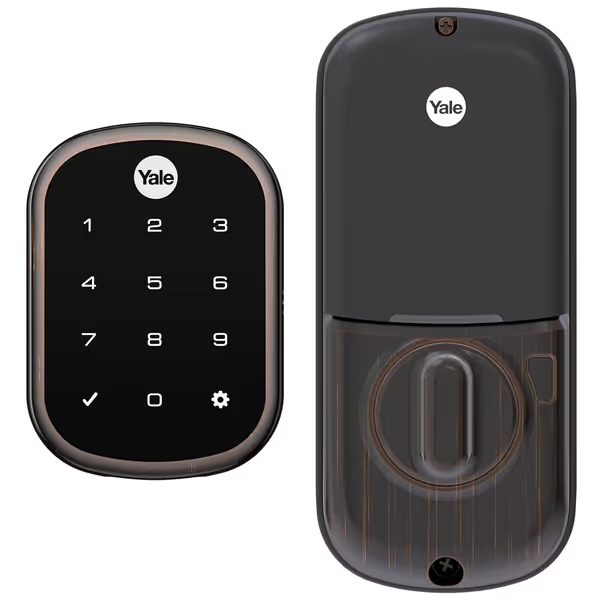
Yale Assure SL Deadbolt Lock
Seamless Guest Management Workflow
For rental properties, your door smart lock must handle cleaner and vendor access without platform dependencies. The ideal solution provides:
- Time-bound codes that expire automatically after guest check-out
- Distinct access windows for different service providers
- Platform-agnostic workflows that integrate with calendar systems locally
- No requirement for guests to download apps or create accounts
This eliminates the common nightmare of guests arriving to find their access codes invalid because the platform integration failed.
Building Your Local-First Security System
Assess Your Door Compatibility First
Tiny homes often feature non-standard doors (thin walls, unusual backsets, or specialized latching mechanisms). Before purchasing any lock: For step-by-step measurements, door prep, and tool lists, follow our DIY smart lock installation guide.
- Measure your door thickness (many tiny homes have doors <1.75" thick)
- Verify backset compatibility (standard is 2-3/8" or 2-3/4")
- Confirm whether your door frame can accommodate strike plate modifications
Prioritize Physical Security Ratings
Don't sacrifice security for size. Look for:
- ANSI Grade 2 or higher mechanical ratings
- Tamper-resistant designs that prevent physical manipulation
- Auto-lock functionality that works without cloud connectivity
A compact lock shouldn't mean compromised security.
Plan Your Check-in Window Strategically
For rental properties, your access design should accommodate realistic guest arrival scenarios:
- Create a 3-hour check-in window that starts before earliest expected arrival
- Program a buffer period for late check-ins without manual intervention
- Implement time-restricted access for cleaning crews between bookings
These operational details separate smooth host experiences from constant access emergencies.
The Path to Truly Space-Optimized Security
Selecting the right smart lock for your tiny home isn't about finding the smallest gadget (it is about implementing a complete access strategy that respects both your physical constraints and data boundaries). As compact living gains popularity, the market is responding with genuinely space-saving door locks that maintain robust security without cloud dependency.
When evaluating minimalist home security options, ask yourself:
- Does this solution work when my internet is down?
- Can I generate time-bound access codes without platform approval?
- Where does my access data actually reside?
- Will this fit within my door's physical constraints without modification?
For mobile tiny home locks, these questions become even more critical when your property might relocate or operate in low-connectivity environments. If your tiny home is on wheels, check our offline RV smart locks guide for compact, vibration-resistant picks. The most successful implementations prioritize local processing, physical security, and operational simplicity over flashy features that require constant cloud validation.
Your compact dwelling deserves security that works as hard as you do, without demanding space you don't have or exposing data you'd rather keep private. By choosing compact dwelling security solutions designed for local operation and space efficiency, you create a foundation for worry-free hosting where guests arrive smoothly and your operational data remains where it belongs: in your control.

